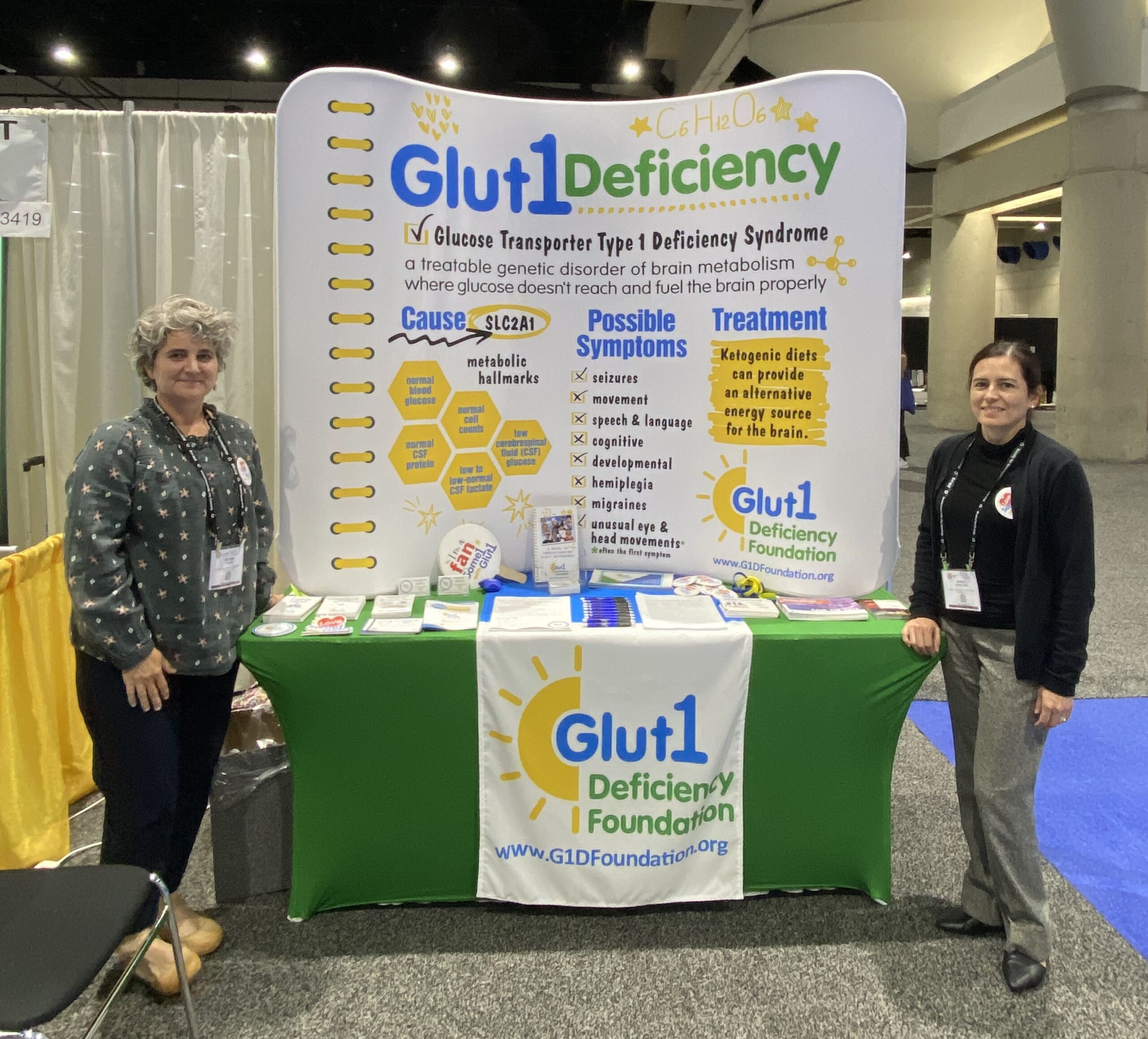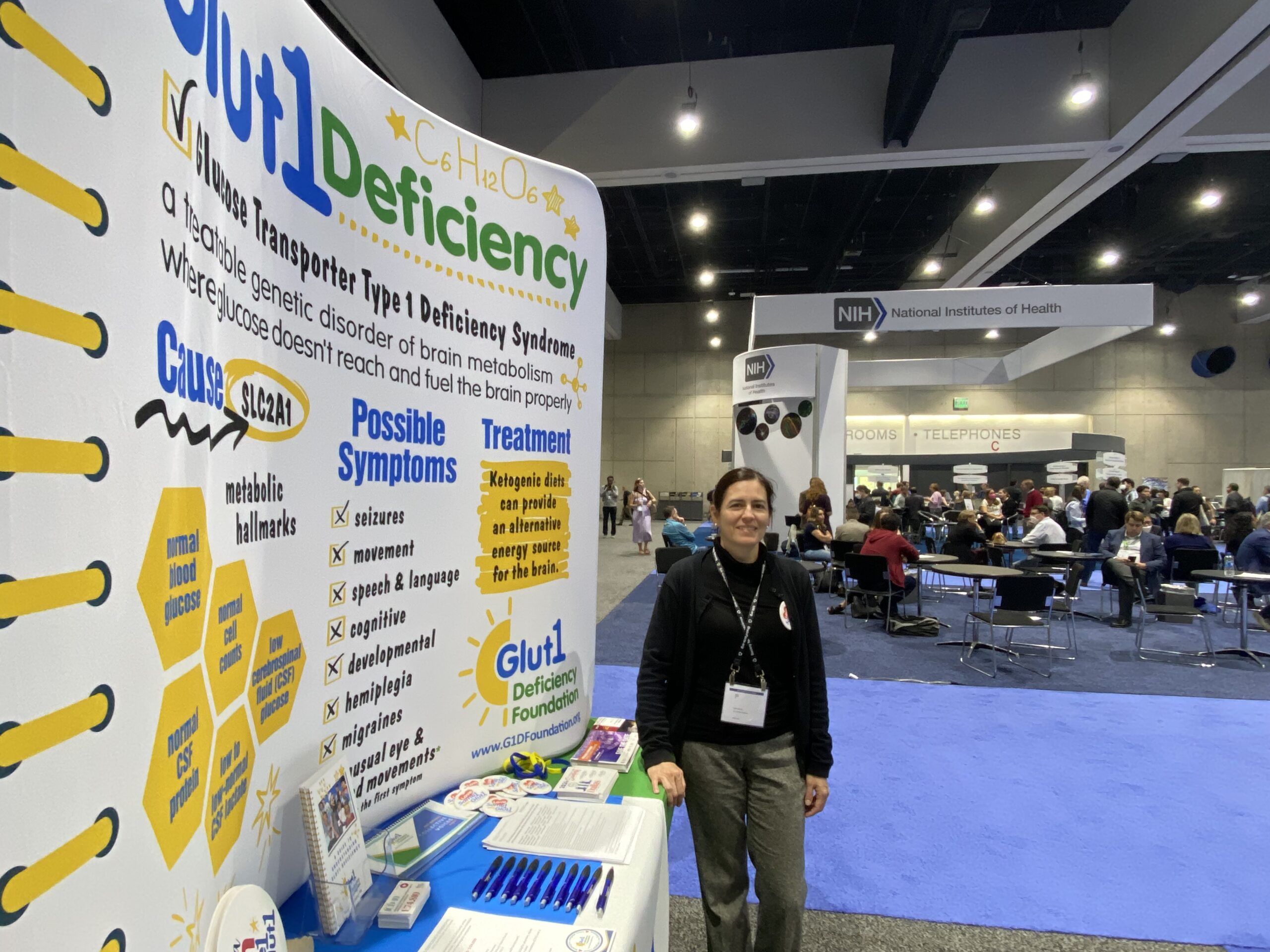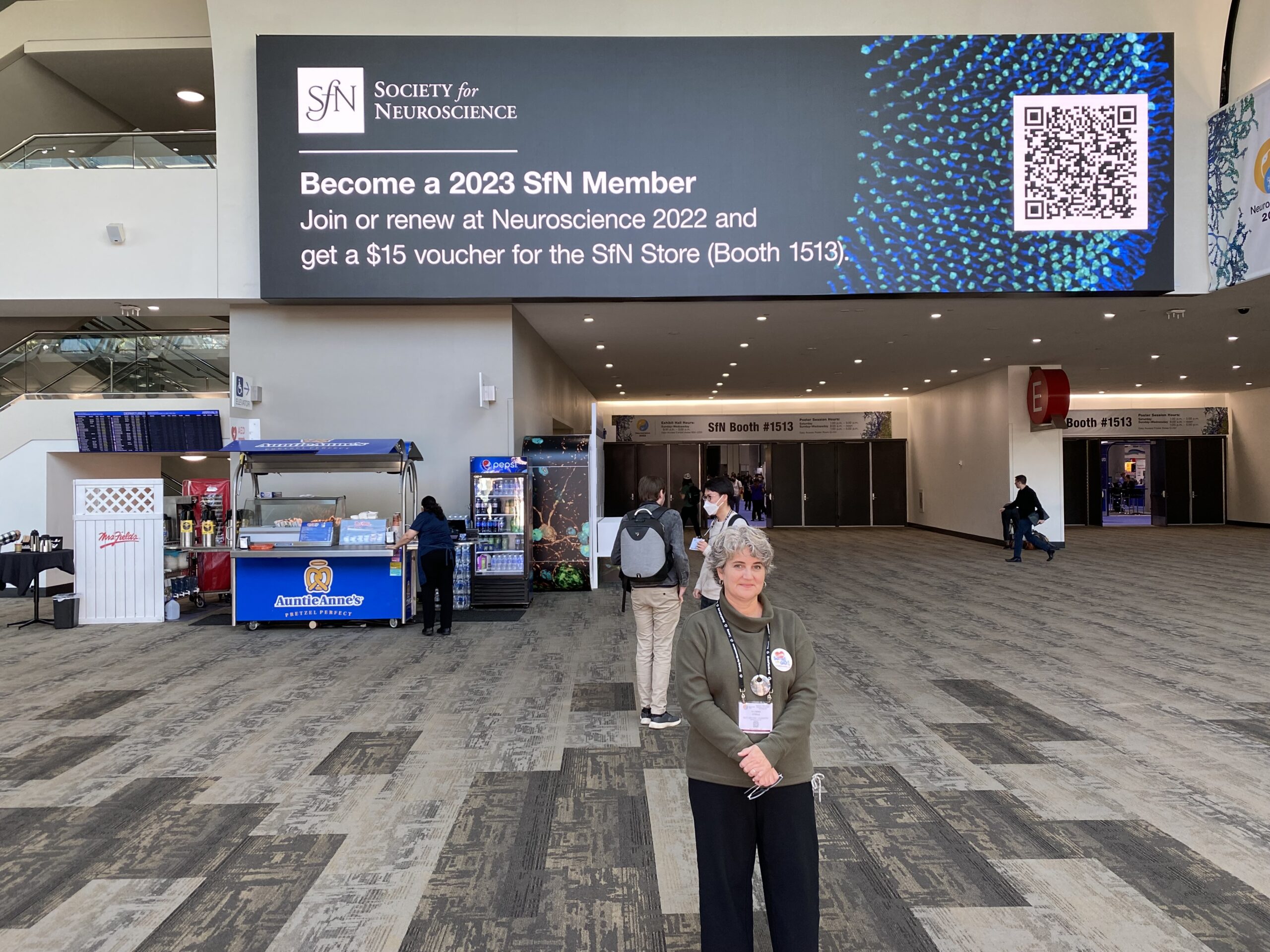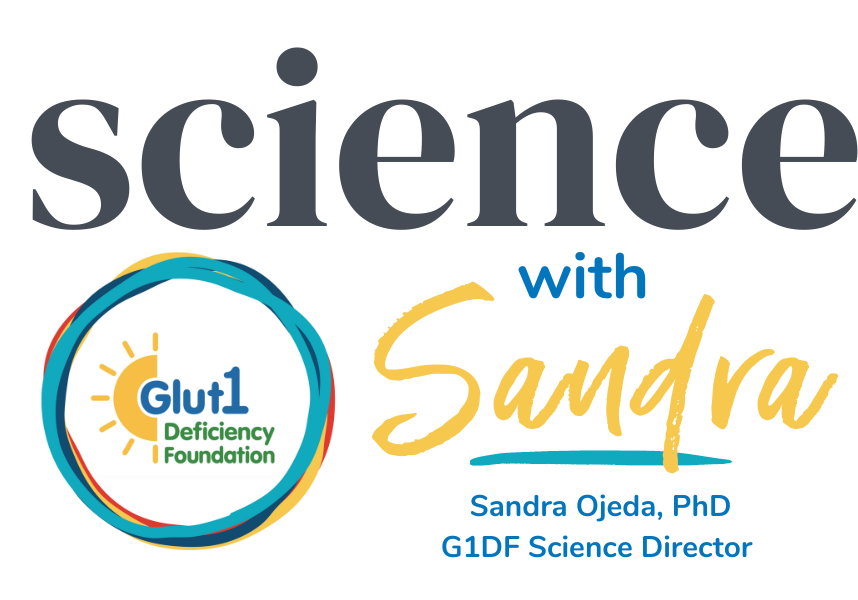Society for Neuroscience Annual Meeting
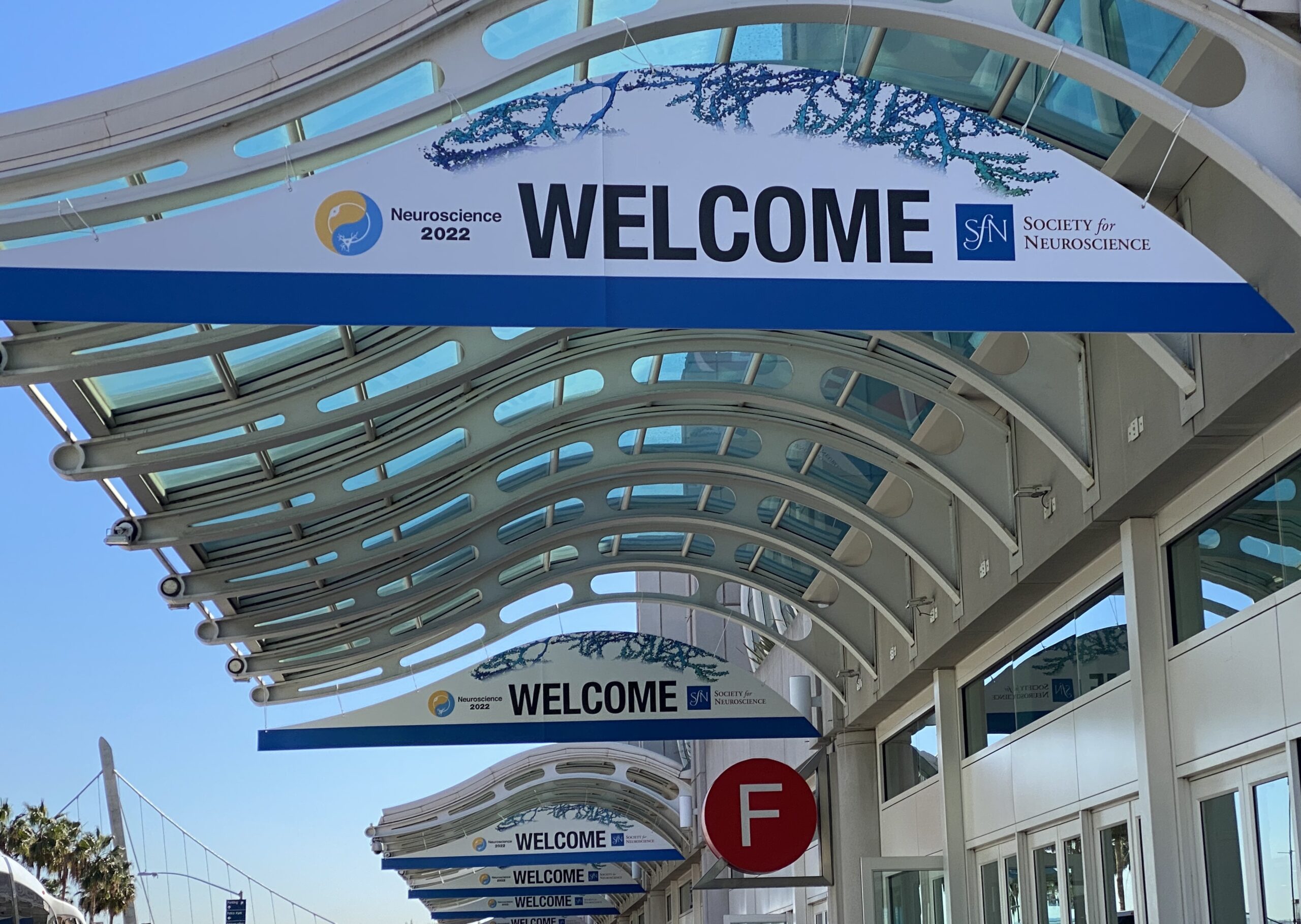
The Glut1 Deficiency Foundation hosted a booth at the annual Society for Neuroscience (SfN) meeting in San Diego in November. SfN is the world’s largest organization of scientists and physicians devoted to advancing understanding of the brain and nervous system. Their annual meetings are a huge but well-orchestrated combination of presentations, networking, poster sessions, and exhibits. Attendees are a mix of undergrad and graduate students, post-docs, basic, translational, and clinical researchers, clinicians, academics, government institutions, and industry. The annual meetings are so large that in fact there are only three convention centers in the United States big enough to hold them, so the location rotates each year through San Diego, Washington, DC, and Chicago. This year’s attendance was 24,351.
This was the second time that the Glut1 Deficiency Foundation had an exhibit booth at SfN, and this meeting presents a wonderful opportunity to raise awareness, make connections, and build relationships across a broad range of people in the neuroscience field. G1DF Science Director Dr. Sandra Ojeda and Executive Director Glenna Steele hosted the booth this year and had a busy and productive experience. We were located next to the NIH (National Institutes of Health) and the poster sessions, so that helped give us some great exposure and raise a lot of awareness. We’ve designed our banner to provide enough information so that someone who just reads it and doesn’t necessarily want to stop and talk still gets the basics. We find a lot of people at the meetings we attend just like to browse and read, and then when they do walk up to learn more or ask questions, they are easy to engage in discussion and share resources.
There was a lot of interest in Glut1 in general, mostly from researchers in the Alzheimer’s Disease (AD) field since there is growing evidence that Glut1 transport becomes impaired in AD patients and disrupts normal brain glucose metabolism. Interestingly, we heard from many of these AD researchers that they didn’t know Glut1 Deficiency existed as a known disease. We also heard from some scientists involved with companies interested in treatment development for our disease and from others who study ketogenic diets. We gave out a lot of brochures and research information and hopefully many more people are now thinking about Glut1 Deficiency and ways to help better understand and treat it.
We also had the chance to visit other exhibitors in the large and full exhibit hall and learn about new tools and resources that will be helpful as we continue our work to build a collaborative research network and provide support to help drive progress. We are thankful for important opportunities like this, which are only made possible by those who support our mission of awareness, education, advocacy and research – thank you!
